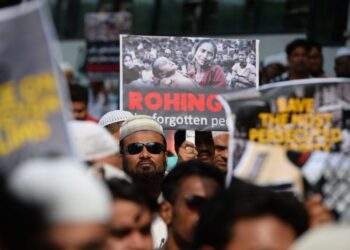An exposé published by the Washington Post details how a group posing as a research organisation, the Disinfo Lab, works to discredit foreign critics of the Modi government by using a combination of “fact-based research and unsubstantiated claims.” The group is run by an Indian intelligence officer.
Portraying itself as an impartial research organization, Disinfo Lab faces accusations of blending verified information with unverified assertions to depict U.S. government officials, researchers, humanitarian groups, and Indian American activists as participants in a worldwide conspiracy against India.
“In each instance, these allegations have gone viral on Indian social media after they were amplified by pro-Modi influencers, who at times used the group’s findings to validate their own positions,” says the report compiled by Gerry Shih, Clara Ence Morse, and Pranshu Verma.
According to the report, Lt. Col. Dibya Satpathy, a 39-year-old intelligence officer with affiliations to India’s external intelligence agency, the Research and Analysis Wing (RAW), is alleged to have established and currently heads the Disinfo Lab. Initially consisting of about a dozen private contractors, the organization, based in New Delhi, reportedly conducts covert operations to undermine foreign critics of the Modi government.
Hindus for Human Rights targeted
In April, the Disinfo Lab released an extensive report criticising Sunita Viswanath, the New York-based founder of the rights group Hindus for Human Rights. Viswanath, who has been vocal about her opposition to the BJP’s Hindu-nationalist ideology, was targeted by the Disinfo Lab, which delved into her past. The report revealed that a nonprofit she had established to aid female Afghan refugees had received funding from Soros’s Open Society Foundations.
Fast forward two months, after Indian opposition leader Rahul Gandhi participated in a meeting with Viswanath during his U.S. tour in Washington. Amit Malviya, the head of the BJP’s social media team, took to Twitter to share a photo of the meeting. Accompanying the tweet was a flowchart bearing the Disinfo Lab logo, outlining Viswanath’s connections to Soros.
“Who is she exactly?” Malviya wrote on X. “She is nothing but a proxy of George Soros, who has committed $1 billion to meddle in India’s internal affairs, through a network of opposition leaders, think tanks, journalists, lawyers and activists.”
Influence outside India
The activities of the Disinfo Lab underscore the expanding influence of online propaganda campaigns orchestrated by the BJP and its allies, reaching beyond traditional domestic targets. The organization’s extensive affiliations with right-wing Indian and Hindu nationalist figures, including prominent BJP members, as well as intelligence and military officials, highlight its considerable impact on social media, notably on X (formerly Twitter).
As per the report, analysts express concern about the blurred lines between India’s national security interests and political objectives, drawing comparisons to Cold War-era KGB tactics. Experts in the report argue that if Indian intelligence is indeed involved in discrediting American critics, it reflects the broader stance of the Modi government towards dissent.
Through its 28 published reports, the Disinfo Lab consistently portrays India as under siege by a vast “nexus” funded by entities such as Pakistani intelligence, the Muslim Brotherhood, and billionaire George Soros. These reports allege connections between these funds and various US-based individuals critical of Modi, including Democratic Party member and US Representative Pramila Jayapal and Indian American activists.
The reports from the Disinfo Lab garner worldwide attention when endorsed by pro-Modi influencers and referenced by Indian officials on both television and Capitol Hill. The investigation singles out notable BJP figures such as Tajinder Bagga, Sanju Verma, and Kapil Mishra, identifying their substantial contributions to the dissemination of Disinfo Lab content.
Influence on US lawmakers
Instances revealed by The Washington Post demonstrate that Disinfo Lab reports have influenced US lawmakers and shaped debates on issues such as India’s pandemic response and legislation addressing caste-based discrimination. The work of Disinfo Lab has raised concerns regarding foreign influence and the spread of misinformation among the American populace.
In its sole known interview, Disinfo Lab acknowledged its establishment in 2020 by individuals with political and marketing backgrounds. The organization asserted a reliance on conventional open-source intelligence-gathering methods and underscored its role in countering a “narrative war” against India.
Responding to inquiries from The Washington Post, Disinfo Lab denied any affiliation with government agencies and maintained its position as an independent organisation committed to exposing disinformation. The report noted unsuccessful attempts to reach Lt. Col. Dibya Satpathy for comment, and National Security Adviser Ajit Doval did not respond to requests for comment.











